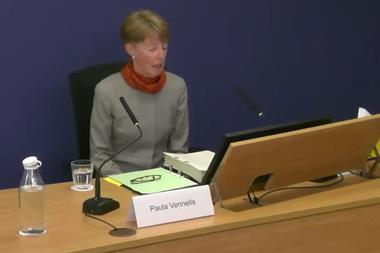Considering applying for finance? Aidan Fortune examines how open banks are to lending to small businesses
While we often see small business owners jumping through hoops on Dragon’s Den for thousands of pounds, not everyone gets that opportunity. And anyway, would you really want Duncan Bannatyne looking over your shoulder as you’re serving customers and ordering stock? That would be enough to make anybody declare that they’re “out”.
However, in order to grow a business, finance is still needed and banks are not parting with money without a fight. The government had planned to magic away small business lending troubles with Project Merlin, through which it charged high street banks to lend £76bn to SMEs in 2011. This proved to be a load of hocus pocus as the net amount lent to small businesses fell short at £74.6bn, according to Bank of England figures. While £1.4bn may not be much between friends, this failure to hit targets within even the first year led to outcry from business leaders and the government itself.
Business secretary Vince Cable said that “small firms are still finding it too difficult to secure the finance they need”, while Forum of Private Business chief Phil McCabe accused the banks of “consistently failing to increase lending to small firms that need it most”.
A recent survey by the Federation of Small Businesses (FSB) also revealed that only 11% of its members were able to obtain a secure bank loan, a drop of 3% compared to 2009. New businesses fared even worse - the FSB survey highlighted that 70% firms between one- to two-years-old were forced to use savings or inheritance to fund their business after finding it difficult to access finance.
Steve Bassett, who runs four Londis stores in Dorset and Southampton, was forced to do just that after his bank wouldn’t give him a competitive rate of interest. “I would have been happy to pay up to 5% interest but my bank was demanding 5% above the base rate. If the interest rate rose to 8% I would have been stuck paying 13% which is ridiculous,” he says. “In the end I used savings to fund the project.”
Steve believes the banks are missing out on opportunities due to their unreasonable terms. “It’s a shame because the sector is doing well and they’re not properly capitalising on it,” he says. “There are plenty of opportunities available through small businesses but they don’t want to know.”
He adds that he no longer has a working relationship with his bank. “Those days are gone,” says Steve. “I don’t approach them for finance and just view it as a service that is needed to run my business while banks just focus on their own targets.”
What other options are available?
If you don’t have any joy with the banks, don’t be too disheartened as there are other options available.
Applicants who have been initially refused finance by their bank can try again through the government-run Enterprise Finance Guarantee (EFG) scheme. The EFG provides a government guarantor for 75% of the loan amount with the applicant covering the remaining 25%.
Brian Capon of the British Banking Association says that banks should be pointing applicants towards this opportunity. “It’s not necessarily an alternative, more of a helping hand in achieving a loan from a high street bank,” he says. “If you have a decent dialogue with your bank, they should be advising the EFG if they think it will work for your business.”
Capon adds that banks should also be advising businesses on their options outside of traditional banking. “Banks are keen to engage with small businesses and want to help them, even if an application isn’t quite right for them.”
Other options available include The Prince’s Trust, which raises over £100m annually for start-ups and business skills funding, the British Business Angels Association, which enables high net worth individuals to invest in businesses, and the Community Development Finance Association, which works mainly in deprived areas but offers finance and support to businesses finding it difficult to gain finance from high street banks.
FSB president John Walker believes that such targets are not the right way to go about business lending. “We have long said that targets are the wrong instrument to encourage lending and growth,” says Walker. “Our research in the last two years shows that around a third of businesses are refused credit and this could be reflected in the fact that newer businesses are using more of their own money to fund their business rather than turn to the banks for help. What we need to see is better promotion of the alternatives available and for the government to put in place its bold credit easing plans, which will help small businesses access finance on better terms.”
In 2010 Baz Patel of Molly’s in Luton, Bedfordshire, was refused finance for a refurbishment by his bank of 20 years and by two others. “They all flat out refused us, saying that ‘they weren’t looking at this sort of business now’,” he says. “They didn’t offer any options or alternatives, just turned us down, even though we had plenty of savings with our bank.”
Two years on, has the situation changed? “In the past two weeks, I’ve had three banks call me to tell me that I’m eligible for finance,” he says. “It’s a shame that it didn’t happen when we needed it but I suppose it’s good to have the option if a project comes up.”
He believes that it’s the government that has changed the banks’ outlook on lending and agrees they’ve missed the boat on some business ventures. “It forced them to be more open to businesses, which is a good thing, but I imagine that they’ve missed a lot of great opportunities because of their hesitation to lend,” says Baz. “I’m certainly not going to get into debt with a bank just because they call me up and offer money, especially after they’ve refused me before.”
Jag Purewal, who runs Spar stores in Romsley and Stourbridge, believes the best way to obtain finance from a lending institution is to build up a strong relationship with your local bank manager. He has been with Lloyds TSB for 12 years and said that this helped when he approached them last year for finance to expand his business. “I was looking for 50% of the cost of the project and I was able to get it,” says Jag. “I did look around to make sure I was getting the best deal but ultimately the bank I had been dealing with for years offered the best terms.”
For those that don’t have the time to build up a long-standing relationship with their bank manager, Jag says that retailers need to show how they have thought through their business proposal. “Even though I know my bank manager well, I still needed to have a five-year business plan,” he says. “I can imagine it’s tough for a new retailer to source finance as you really need a proven track record in business, but if you don’t have that you need to be very sure of your plans and that it will be a success. Banks tend to play it very safe when it comes to lending so you need to be able to show them how you will spend their money and that you’re able to pay it back to them.”
How do the banks compare when it comes to lending to small businesses?
If you’re set on obtaining a loan from a high street bank, it’s helpful to know which one is most likely to open its pursestrings. Earlier this month, all of the high street banks released their 2011 lending to small business figures.
Of the big five, four of them were keen to embrace lending to small businesses. Barclays reported a 3% increase in business lending last year, as did Lloyds TSB. HSBC smashed its target of a 15% year-on-year increase in lending to small and medium-sized enterprises in 2011 and has just announced that it aims to approve 80% of applications from SMEs in 2012. Santander reported that it had increased its business lending by 25% last year, although it was starting from a much smaller number than the other banks.
Unfortunately, the bank owned by you and I wasn’t as quick to spread the money to small businesses in 2011. RBS’ net lending to small businesses dropped by 4% in 2011 compared to the previous year, although it claimed this was due to a “slump in applications by creditworthy institutions” rather than an unwillingness to lend. No matter what the reason, it was RBS’ decline in lending to small businesses last year that caused Project Merlin to fall short of its target.
Of course, if your proposal is sound, it shouldn’t matter which bank you approach - they should be willing to offer you the finance you need. Your final preference should depend on which bank you trust personally. If any.
While the banks failed to meet their collective targets for 2011, the British Banking Association (BBA) says it was not for the lack of good intentions. “Banks are in the business of lending money, but they also want to make sure that they see a return as well as recoup the money lent,” says BBA spokesman Brian Capon. “Despite the perception of high levels of interest, there is actually a very small margin when it comes to lending, and if a business reneges on a loan it can have a serious impact on a bank.”
He says that banks are looking to see if the applicant has a ‘plan B’. “They want to know that a business can survive any additional outgoings that may occur and that they will meet the financial commitments of the loan,” says Capon. “The reason most applications fail is because a business owner comes in with no clear plan about how the money will be repaid and what timescale. Even if a struggling business is looking for a small-term loan to cover itself during a lean patch, banks are more likely to hear them out if the business owner is upfront about how they got into this situation, how they plan to get out of it and how long it is likely to last for.”
In the grand scheme of things, the convenience sector is quite healthy, but do banks realise this? Capon assures us that they investigate each case thoroughly. “They will look at the business, the sector and the overall economy when deciding on lending,” he says. “They do want small businesses to prosper and are keen to engage with the industry, they just want to be sure that they will get their money back.”
Barclays spokesman Michael O’Toole agrees that banks will play it safe but says that it’s not because they’re opposed to lending to small businesses. “We are open to lending - on average four out of five applications to Barclays for finance are successful and in 2011 we supported 112,000 new businesses, a record high for the UK,” he says. “We just want to make sure that it’s a good investment for us.”
The bank will look at more than just a business plan, he adds. “In order for us to lend, a business has to prove that it has thought out its plans. A solid business plan obviously helps but we like them to demonstrate passion and commitment, which goes a long way with us.”
O’Toole says that just because the economy isn’t what it was, banks aren’t flat out refusing finance.
“A good business will always be a good business even if the wider economy may be struggling. If a proposed store is the only one in an area, then it should succeed and most banks should be willing to support that.”




























No comments yet